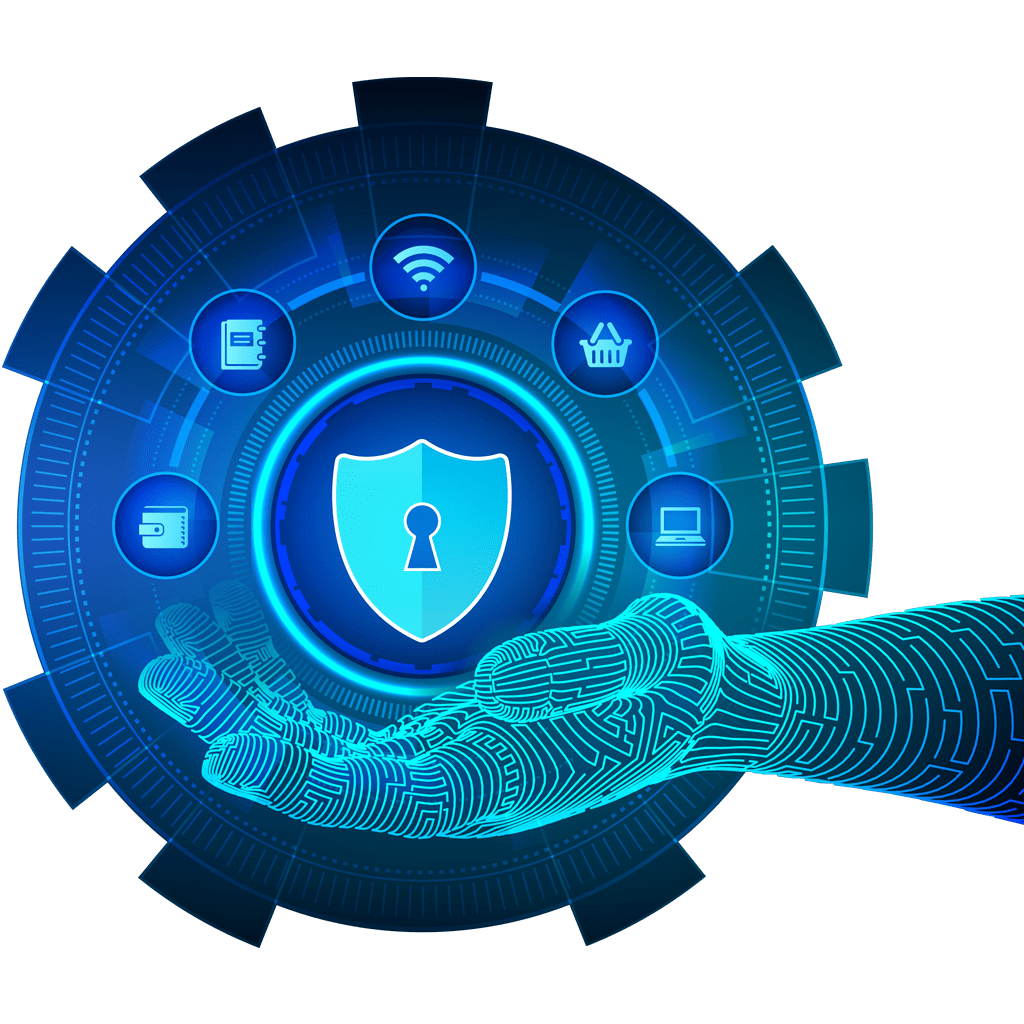Best Managed IT Services And Cybersecurity Solutions
Stay Ahead of Threats with Our Cybersecurity & Managed IT Services

cybersecurity solutions
Ark Solvers specializes in delivering top-tier cybersecurity solutions tailored to meet the unique needs of businesses across various sectors, including small businesses, enterprises, and industrial operations. Understanding the evolving landscape of cyber threats, Ark Solvers offers custom cybersecurity solutions that safeguard digital assets and ensure compliance with the latest cybersecurity standards. Our approach focuses on implementing robust cybersecurity measures designed to protect against a wide array of cyber threats, enhancing your business’s resilience against cyber attacks.
Our cybersecurity solutions are crafted for small businesses to provide the most effective protection without overwhelming resources, ensuring that even the smallest entities can defend themselves against cyber threats. Ark Solvers extends its expertise to enterprises and industrial sectors by offering scalable and comprehensive cybersecurity solutions that address specific industry challenges and threats. Our team of experts is dedicated to providing local cybersecurity solutions that align with your business’s needs, ensuring that your operations are safeguarded with the highest level of security.
At Ark Solvers, we believe in a proactive approach to cybersecurity. Our services include ongoing monitoring, threat detection, and incident response, ensuring your business remains one step ahead of potential cyber threats. Whether you’re seeking to enhance your cybersecurity posture, achieve compliance, or develop a custom cybersecurity strategy, Ark Solvers is your trusted partner in navigating the complex world of cybersecurity.
Maximizing Business Efficiency with Top Cloud Service Providers
Ark Solvers stands at the forefront of maximizing business efficiency through top-tier cloud service providers. Specializing in a comprehensive suite of services, including cloud security as a service, AWS backup service, and server migration, we cater to businesses aiming to enhance their operational capabilities while securing their digital landscape. Our partnership with the best cloud service providers ensures that your organization benefits from the latest cloud computing security services tailored to your unique needs.
We recognize the critical role of cloud security in today’s digital ecosystem. That’s why Ark Solvers collaborates closely with top cloud security companies to offer robust security measures, safeguarding your data and applications against cyber threats. Our cloud services and security solutions are designed to provide seamless protection, allowing you to focus on growing your business without worrying about potential security breaches.
Whether you’re looking for backup-as-a-service to ensure data integrity or an AWS server migration service for a smooth transition to the cloud, Ark Solvers is your trusted partner. Our expertise in navigating the complexities of cloud services positions us to optimize your business operations, reduce costs, and enhance your overall security posture. With Ark Solvers, embark on a journey to harness the full potential of cloud computing, driving unparalleled business efficiency.


Navigating Digital Transformation with Expert IT Consulting
Ark Solvers is a pioneering IT consulting company dedicated to navigating digital transformation through expert IT consulting services. Our mission is to empower businesses by harnessing the potential of IT solutions, facilitating seamless digital transitions, and fostering innovation. With a deep understanding of the challenges and opportunities the digital age presents, Ark Solvers offers a comprehensive suite of IT consulting services, ranging from IT consultancy near you to global IT management consulting.
Our team of seasoned experts specializes in IT business consulting, ensuring that your organization leverages the latest technologies to stay ahead in a competitive landscape. Whether optimizing your current IT infrastructure or implementing cutting-edge solutions, our professional IT consulting services are tailored to meet your needs. Ark Solvers stands as a beacon of innovation in IT services & consulting, guiding everything from cybersecurity to cloud solutions and beyond.
We believe in a collaborative approach, working closely with our clients to understand their unique business objectives. This allows us to offer targeted business IT consulting services that address current challenges and anticipate future needs. With Ark Solvers, you gain a strategic partner committed to driving your digital transformation efforts forward, ensuring your business thrives in the digital era.
We provide cybersecurity, IT services & consulting, and below services
Future-Proof Your Business: Strategies from Top Business Continuity Consultants
Ark Solvers is at the forefront of providing top-notch business continuity consultant services, offering strategic solutions to future-proof your business against unforeseen disruptions. Our comprehensive approach to business continuity and disaster recovery planning ensures that your organization is prepared to respond effectively to incidents without compromising operational integrity or security.
Our expertise extends to crafting customized business continuity plans that integrate seamlessly with your organization’s objectives and operational framework. We emphasize the importance of a robust planning process, incorporating risk management and business continuity strategies to mitigate potential threats and minimize downtime. Ark Solvers’ services are designed to safeguard your business’s critical functions, from cybersecurity business continuity plans to comprehensive disaster recovery frameworks.
Understanding the evolving landscape of cyber threats, our team integrates business continuity cybersecurity measures, ensuring your digital assets remain secure even in a crisis. With Ark Solvers, you gain access to dedicated professionals committed to enhancing your organization’s resilience, enabling you to navigate challenges and maintain competitive advantage confidently. Our mission is to empower your business with the tools and strategies needed for enduring success, ensuring you’re prepared for tomorrow and today.

Ready to Take the Next Step? Business Continuity Services

24/7 Managed IT Support: Keeping Your Business Connected and Secure
Ark Solvers offers 24/7 managed IT support, ensuring your business remains connected, secure, and ahead in the digital race. As a leading IT managed service provider, we specialize in delivering comprehensive managed IT solutions tailored to your business’s unique needs. Our services extend from the heart of your IT infrastructure to the cloud, providing a seamless integration of managed IT network services and cloud-managed IT services to support your business operations around the clock.
Our team of experts is committed to delivering excellence. We offer everything from remote-managed IT services to onsite support, ensuring that we’re there whenever you need us. With Ark Solvers, you gain a partner who understands the technicalities of managed IT and prioritizes your business’s continuity and growth. We offer a robust suite of services, including national compliance management and IT compliance services, to keep your business running and compliant with industry standards and regulations.
Choosing Ark Solvers means opting for a managed IT provider that stands for reliability, security, and innovation. Our mission is to empower your business with the technology and support it needs to thrive in today’s competitive landscape, ensuring that your IT infrastructure is a powerful, efficient engine driving your business forward.
The First Line of Defense: Essential Steps in Cybersecurity Risk Assessment
Ark Solvers delivers a comprehensive suite of cybersecurity risk assessment services, positioning itself as the first line of defense in safeguarding your digital ecosystem. Our approach to cybersecurity risk assessment is rooted in a deep understanding of the evolving cyber threat landscape, enabling us to identify and mitigate vulnerabilities before they can be exploited.
At the core of our services is a meticulous cybersecurity threat assessment process designed to evaluate your organization’s current security posture against potential threats and risks. By leveraging the latest information security risk assessment methodologies, we provide actionable insights that empower your business to strengthen its defenses. Our cybersecurity risk assessment services encompass everything from IT security risk assessments to vulnerability assessment services, ensuring a holistic view of your cyber risk exposure.
Ark Solvers specializes in identifying critical vulnerabilities through detailed cyber risk assessments, including network and cybersecurity vulnerability assessments. Our team of experts employs advanced tools and techniques to conduct thorough security assessments, ensuring your organization’s resilience against cyber threats. Whether you’re concerned about information security and risk assessment or seeking comprehensive computer network vulnerability assessment, Ark Solvers is dedicated to enhancing your cyber defense capabilities, making us your trusted partner in navigating the complexities of cybersecurity risk management.

Schedule Your Consultation for Managed IT Support
IT Security Services Company
Ark Solvers, an IT Security Services Company, specializes in cutting-edge solutions to protect businesses from cyber threats. We offer comprehensive security assessments, cybersecurity defenses, and ongoing support to ensure your digital assets remain secure against evolving threats. Trust Ark Solvers to be your cybersecurity shield in the digital age.
Protect Your Critical Info
ARK Solvers’ responsive on-call service safeguards your computer network against cyber threats, natural calamities, and server failures, ensuring the security of your crucial data.
Lower Your Expense
Equipped with cutting-edge technology, streamlined systems, and reduced downtime, our existing clients have experienced a 37% decrease in costs.
Boost Productivity
Implementing cutting-edge technology and digital tools in your workplace can elevate employee efficiency, automate monotonous tasks, optimize workflows, and increase productivity.
Focus on Your Business
Eliminate the pesky distractions that hinder your team’s efficiency and witness your business reach new peaks of productivity and expansion!
We provide cybersecurity, Cloud, IT services & consulting in these locations
Transform Your Workspace with Advanced Office 365 Migration Services
Ark Solvers leads the way in transforming workspaces with our advanced Office 365 Migration Services, offering a seamless transition to a more collaborative, efficient, and secure digital workplace. Specializing in Microsoft 365 consulting, we ensure businesses of all sizes can smoothly migrate to Office 365, leveraging cloud migration software to enhance productivity and streamline operations.
Our expertise in Microsoft 365 migration, including comprehensive Microsoft 365 email migration, allows us to tailor solutions that fit your business needs. Whether migrating from an on-premises system, an enterprise vault, or another cloud service, Ark Solvers ensures a smooth and efficient transition with minimal disruption to your day-to-day operations. Our Office 365 migration service is designed to handle all aspects of the migration process, from initial planning and strategy to execution and post-migration support.
We understand the challenges businesses face when migrating to Office 365, which is why our team of experts provides end-to-end guidance and support throughout the process. Our Microsoft Office 365 migration services include thorough data security measures, ensuring your information is protected at every step. With Ark Solvers, you can confidently embark on your enterprise vault migration to Office 365, knowing that you have a dedicated partner committed to maximizing your investment in Microsoft’s robust suite of productivity tools.

OUR PARTNER Business IT Consulting Services
Ark Solvers, your trusted partner in Business IT Consulting Services, offers unparalleled professional IT consulting and management expertise. Our comprehensive suite of services, including IT managed services, empowers businesses to achieve peak efficiency and innovation. Let us navigate your IT challenges, transforming them into strategic advantages.










Ready to Take the Next Step? IT Services Provider
Let’s discuss how we can make your business more efficient and secure.
TESTIMONIALS
See What Our IT Support Clients Are Saying
I would like to thank ARK Solvers during this Covid Pandemic in which they were able to set me up at my home office in a timely and professional manner.
- D.B.
Arch Staffing has worked as a vendor for ARK Solvers providing them with talented technicians. Andre was very professional and engaging throughout our process. He was always there to give us quick and timely feedback on our candidates. Andre is great to work with. It is an absolute pleasure working with him. Tania and the rest of the team are outstanding as well. I highly recommend them for your technology needs.
- Anthony G.
I can only count on ARK Solvers for my computer needs. I’m thankful they are always there to assist.
- Maycol V.
Meet Our team


Striving for Success
In Best IT Consultant Company




